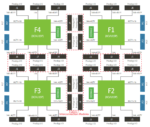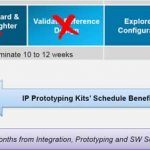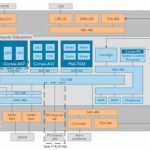Last week, Synopsys announced an expansion of their Hardware-Assisted Verification (HAV) portfolio to accelerate semiconductor design innovations. These advancements are designed to meet the increasing demands of semiconductor complexity, enabling faster and more efficient verification across software and hardware… Read More
Tag: fpga-based prototyping
Accelerating FPGA-Based SoC Prototyping
FPGA-based prototyping offers advantages such as high-speed operation, real-world environment testing, and parallel execution that cannot be matched by software simulations alone. It enables developers to validate their designs and initiate software development long before the final silicon is ready. At the same time,… Read More
Systematic RISC-V architecture analysis and optimization
The RISC-V movement has taken off so quickly because of the wide range of choices it offers designers. However, massive flexibility creates its own challenges. One is how to analyze, optimize, and verify an unproven RISC-V core design with potential microarchitecture changes allowed within the bounds of the specification. … Read More
A faster prototyping device-under-test connection
When discussing FPGA-based prototyping, we often focus on how to pour IP from a formative SoC design into one or more FPGAs so it can be explored and verified before heading off to a foundry where design mistakes get expensive. There’s also the software development use case, jumpstarting coding for the SoC before silicon … Read More
Flexible prototyping for validation and firmware workflows
The quest for bigger FPGA-based prototyping platforms continues, in lockstep with each new generation of faster, higher capacity FPGAs. The arrival of the Xilinx Virtex UltraScale+ VU19P FPGA takes capacity to new levels and adds transceiver and I/O bandwidth. When these slot into S2C’s Prodigy S7-19P Logic System, the result… Read More
OpenCL hits FPGA-based prototyping modules
OpenCL brings algorithm development into a unified programming model regardless of the core, working across CPUs, GPUs, DSPs, and even FPGAs. Intel has been pushing OpenCL programming for some time, particularly at the high end with “Knights Landing” processors. Where other vendors are focused on straight-up C high-level … Read More
Protium for the win in software development
Cadence Design Systems is a long-standing provider in hardware emulation, but a relative newcomer to FPGA-based prototyping. In an upcoming lunch and learn session on November 11 in San Jose, Cadence teams will be outlining their productivity strategy. What’s different with their approach and why is this worth a lunch?… Read More
S2C adds support for Juno ARM dev platform
We’ve had several blogs introducing the Juno ARM Development Platform as a vehicle for ARMv8-A software development. S2C has jumped in with a module connecting their FPGA-based prototyping platform to the Juno, enabling more advanced IP… Read More
More on HAPS hybrid prototyping for ARMv8 with Linaro
A few weeks ago we previewed a Synopsys webinar describing how they are linking the ARM Juno Development Platform with the HAPS-80 and HAPS ProtoCompiler environment. I’ve had a look at the archived event and have some additional thoughts.… Read More
Webinar alert – Hybrid prototyping for ARMv8
All the talk about ARM server SoCs has been focused on who will come up with the breakthrough chip design. Watching trends like OPNFV develop suggests the big breakthrough is more likely to come on the ARMv8 software side. How do you quickly validate ARMv8 software when you don’t have the exact ARMv8 SoC target?… Read More









